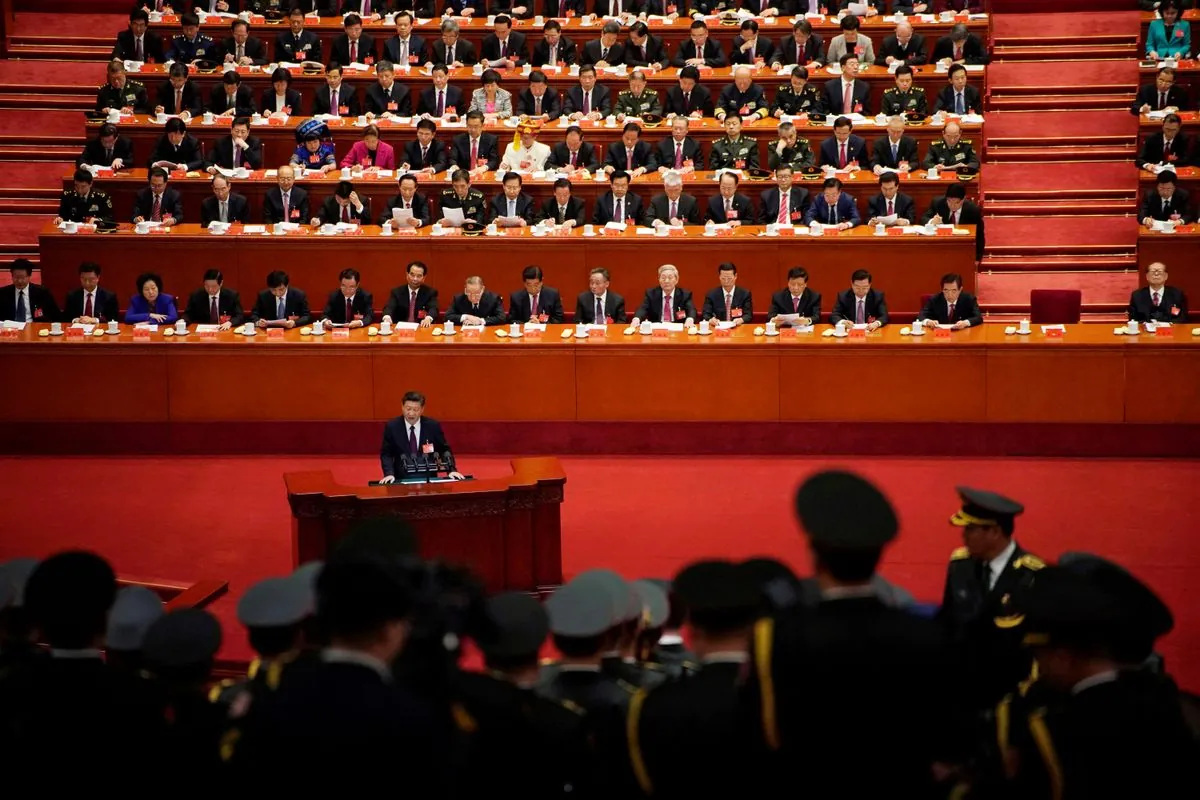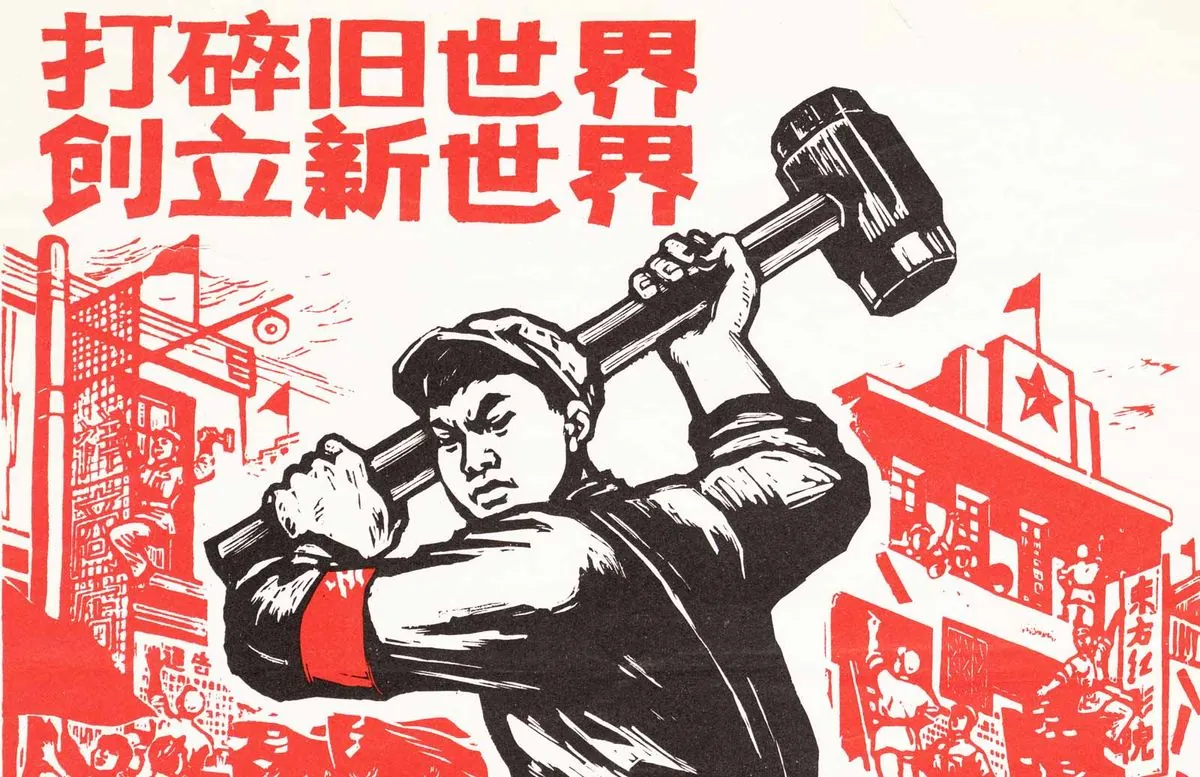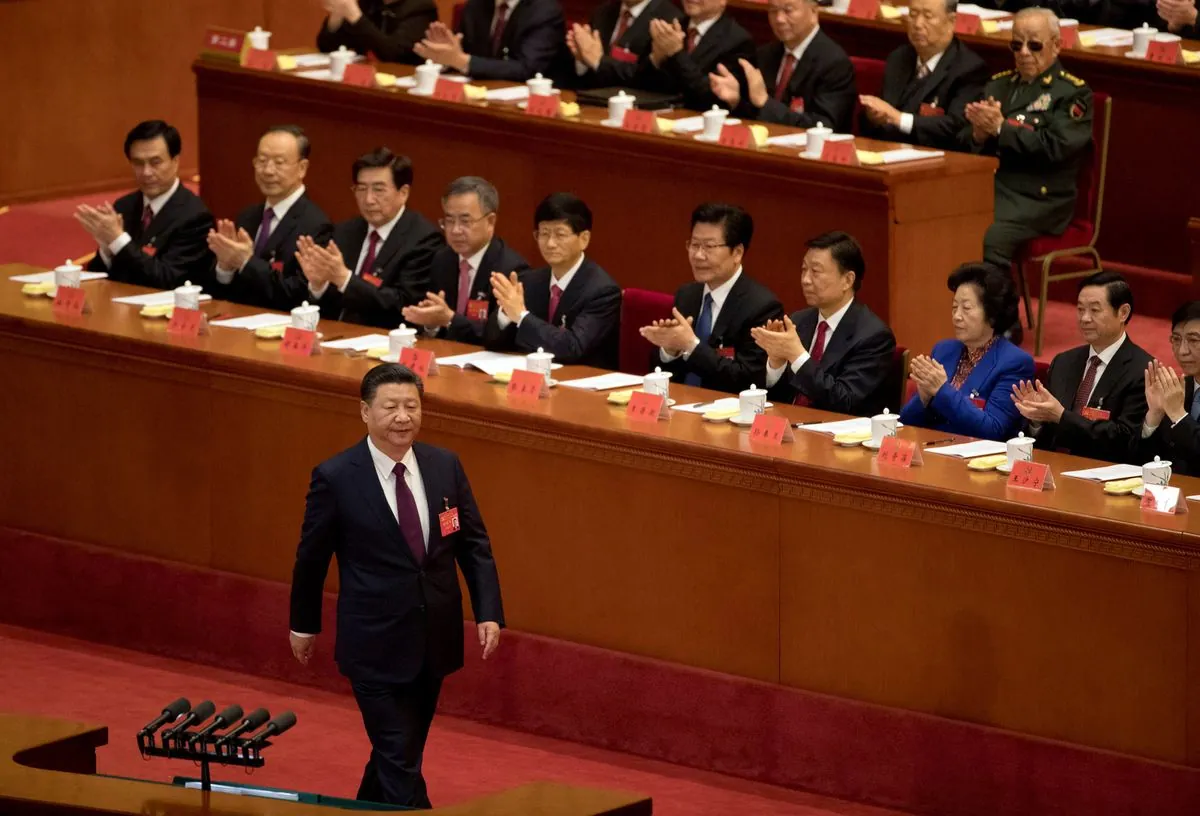China's Communist Party: 75 Years of Power and Transformation
China's Communist Party marks 75 years of rule, evolving from Mao's tumultuous era to economic powerhouse. Now facing slower growth and global tensions, it aims for national "rejuvenation" by 2049.

In 2024, the Communist Party of China (CPC) celebrates 75 years of uninterrupted rule, surpassing the Soviet Union's 74-year reign. This milestone underscores the party's resilience and adaptability in governing nearly one-fifth of the global population.
The CPC's journey began in 1949 when Mao Zedong proclaimed the People's Republic of China. The initial 25 years were marked by turbulence, including the disastrous Great Leap Forward (1958-1962), which resulted in an estimated 15-55 million deaths due to famine. The Cultural Revolution (1966-1976) followed, causing widespread social upheaval and economic stagnation.

A pivotal shift occurred in 1978 when China embarked on economic reforms under Deng Xiaoping's leadership. This transformation, known as "socialism with Chinese characteristics," propelled China to become the world's second-largest economy by 2010. The country's GDP has grown at an impressive average annual rate of about 9% since these reforms began.
China's development has challenged conventional wisdom about the relationship between economic and political systems. While partially embracing market forces, the CPC has maintained strict political control, resisting calls for democratization. This was starkly demonstrated during the 1989 Tiananmen Square protests, which were forcefully suppressed.
"We must integrate the universal truth of Marxism with the concrete realities of China, blaze a path of our own and build a socialism with Chinese characteristics."
Under current leader Xi Jinping, who became General Secretary in 2012, the party has reasserted its central role in all aspects of Chinese life. This includes a renewed emphasis on Marxist ideology and tighter control over the economy, as evidenced by increased regulation of tech giants and the implementation of the social credit system in 2014.
The CPC's achievements are notable. China has lifted millions out of poverty, built the world's largest high-speed rail network (over 40,000 km as of 2024), and become a global leader in technology and innovation. The country successfully hosted both the Summer (2008) and Winter (2022) Olympics, showcasing its rise on the world stage.
However, the party faces significant challenges as it looks towards its centennial in 2049. An aging population, slowing economic growth, and intensifying geopolitical tensions, particularly with the United States, pose complex problems. The implementation of the Hong Kong national security law in 2020 and ongoing issues regarding Taiwan further complicate China's international relations.
As the CPC strives for what it terms the "rejuvenation" of the Chinese nation, it must navigate these challenges while maintaining its grip on power. The party's ability to adapt to changing circumstances will be crucial in determining whether it can achieve its ambitious goals and continue its rule into the next quarter-century.

The Communist Party of China's 75-year rule represents a unique experiment in governance, blending elements of communism with market economics. As it moves forward, the world watches to see how this political model will evolve and what implications it will have for global politics and economics in the coming decades.


































